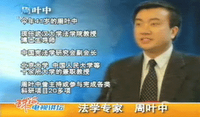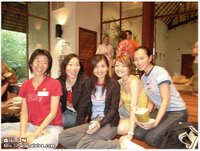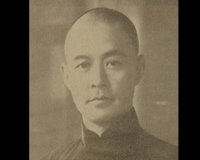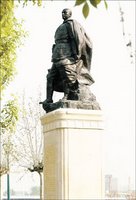Toyota's brand new Reiz and Crown were reported suffering from oil leaks. A Toyota Reiz driver's club estimated that 30-50% of new Reiz and Crown were seen oil leaking within 2000 miles, and greater than 80% of Toyota Reiz and Crown were seen oil leaking within 5000 miles.
Toyota brushed the problem off as non-safety related, and refused to issue a recall. Some Reiz owners were confused when they observed that Toyota dealers trying different seals to fix the problem. At first, they used a light-grey seal made in Japan, then an unknown black seal, then a red seal made in Germany. Although Toyota issued maintenance guideline to its dealers, many owners were told the problem was a design flaw that couldn't be fixed. Many more had their cars serviced multiple times at the Toyota dealer. They were promised the problem would be gone, only to see it coming back in a few days. Others were feel in tricks by Toyota dealers in believing their cars were not infected.
Priced at $24,975, Reiz was well received by the Chinese market when Toyota released it at the beginning of this year. The first quarter sales hit 16,000. Toyota has several assemble lines in Tianjin, where Corolla, Vois, Reiz and Crown cars are produced. The trouble making engines involved were manufactured its plant in a northeastern city Changchun.
First Finance Daily, ASQ
The SJR produces timely updates and in-depth analysis on news and information of interests to Chinese in America and Americans in China.
Wednesday, May 31, 2006
Saturday, May 20, 2006
Yingtan: Thousands of Dragon Boats Destroyed

Thousands of dragon boats were destroyed by the government in Yingtan, Jiangxi Province. Local officials argued that traditional dragon boat racing often drew crowd from nearby areas. They see it as a public security risk. They ordered all dragon boats destroyed so that no racing will take place in this year's traditional festival.
Friday, May 19, 2006
Zhou Yezhong: Plagiarism no where defined in Chinese law

Professor Zhou Yezhong of the law school of the Wuhan University was accused of plagiarism by Mr. Wang Tiancheng in the second intermediate court of Beijing. Professor Zhou was alleged to copied 46 places in a book published last year from Mr. Wang's articles posted in 1999 at online law discussion web site.
Professor Zhou did not appear in the first day of court on May 12, but issued a statement through his lawyer, in which the defendant claimed that he couldn't find a clear definition of plagiarism in Chinese laws.
Professor Zhou is known as the first professor to give presentation on legal issues to the top communism leaders. Professor Zhou is the deputy chair of the academic affairs committee of Wuhan University.
Wednesday, May 17, 2006
Yahoo asks to be excluded from adware list, again
Yahoo is (in)famous in China thanks to their adware '3721' and 'Yahoo Assistant'. '3721' is the type of software than can pop up tons of windows, and there's simply no easy way to remove them. Attempt to remove '3721' by end users, even those experienced users, often ended up as a system crash.
'PCTuTu', or 'super rabit' is a utility that can be used to tuned up the Windows as well as remove unwelcoming spamware. The user of PCTutu can choose to delete '3721' from their system. On Monday, the PCTuTu published their reply letter to Yahoo's request to have '3721' excluded from the list of software that can be removed by the PCTuTu.
'3721' is the most notorious software in the history. In 2005, Chinese online media ranked it Number 1 of the Top 10 Chinese Malware. '3721' was installed to users' computers either by bundle itself with other software, or by secretly install an DLL file when users browsing some websites. It alters users' system files so that it can't not be removed. It is identified by Norton Antivirus as an adware with high risk. It is so impressive and admirable that Yahoo even has the courage to send the request. In an earlier incident, well known security software Kaspersky Anti-Virus (AVP) had shortly classified '3721' as virus, before contacted by Yahoo to have it removed from virus list.
According to the wiki, '3721' or 'Yahoo Assistant' loads itself even in the Windows safe mode, therefore it can circumvent users' attempt to repair the Windows registry. An incomplete removal will lead to self-repair by downloading missing files from the Internet. As a result, software such as the Microsoft AntiSpyware will enter an infinite loop.
Yahoo, I fu le you!
'PCTuTu', or 'super rabit' is a utility that can be used to tuned up the Windows as well as remove unwelcoming spamware. The user of PCTutu can choose to delete '3721' from their system. On Monday, the PCTuTu published their reply letter to Yahoo's request to have '3721' excluded from the list of software that can be removed by the PCTuTu.
'3721' is the most notorious software in the history. In 2005, Chinese online media ranked it Number 1 of the Top 10 Chinese Malware. '3721' was installed to users' computers either by bundle itself with other software, or by secretly install an DLL file when users browsing some websites. It alters users' system files so that it can't not be removed. It is identified by Norton Antivirus as an adware with high risk. It is so impressive and admirable that Yahoo even has the courage to send the request. In an earlier incident, well known security software Kaspersky Anti-Virus (AVP) had shortly classified '3721' as virus, before contacted by Yahoo to have it removed from virus list.
According to the wiki, '3721' or 'Yahoo Assistant' loads itself even in the Windows safe mode, therefore it can circumvent users' attempt to repair the Windows registry. An incomplete removal will lead to self-repair by downloading missing files from the Internet. As a result, software such as the Microsoft AntiSpyware will enter an infinite loop.
Yahoo, I fu le you!
[公告] 超级兔子已经收到雅虎(中国)发来的邮件
作者:蔡旋 发布时间:2006-5-15 16:23:00 点击:6465
尊敬的alibaba-inc.com公司:
超级兔子作者在今日已经收到贵公司发来的:关于超级兔子恶意删除网络实名、雅虎助手的邮件了,超级兔子非常愿意配合贵公司,但也请告诉我们如何修改程序,才不算恶意删除网络实名、雅虎助手呢?
此 致!
蔡旋
2006-5-15
HYSIS Hoax, Update 4
The case suddenly drew attention from western media on scientific misconduct in China. Numerous western media including WSJ and NYT as well as geek websites such as Digg and slashdot reported how Professor Chen Jin of Shanghai Jiao Tong University (SJTU) was found guilty of academic misconduct. However, they all missed the point that this was not an academic misconduct case.
First, there's nothing academic here in the project. The project was to design and produce an ancient time digital signal processing time with no scientific value at all. It's rather easy to make such a design, but rather difficult to manufacture one. So far, none was manufactured.
Secondly, thousands of people, many top companies and top government experts in the field were directly involved in the project. There is simply no way Dr. Chen can fabricate everything by himself.
The Seagull does not want to draw any conclusion at this point, and actually, any logical reasoning from this point is scary. In the least, it is Shanghai Jiao Tong University, instead of any individual, should be held accountable for this.
Earlier entries: orginal coverage, Update 1, 2, 3
New York Times, Business Week, Christian Science Monitor, Guardian, Washington Post, North Korea Times, Wall Street Journal, Taipei Times, Slashdot, Daily Inida, Seattle Post Intelligencer
First, there's nothing academic here in the project. The project was to design and produce an ancient time digital signal processing time with no scientific value at all. It's rather easy to make such a design, but rather difficult to manufacture one. So far, none was manufactured.
Secondly, thousands of people, many top companies and top government experts in the field were directly involved in the project. There is simply no way Dr. Chen can fabricate everything by himself.
The Seagull does not want to draw any conclusion at this point, and actually, any logical reasoning from this point is scary. In the least, it is Shanghai Jiao Tong University, instead of any individual, should be held accountable for this.
Earlier entries: orginal coverage, Update 1, 2, 3
New York Times, Business Week, Christian Science Monitor, Guardian, Washington Post, North Korea Times, Wall Street Journal, Taipei Times, Slashdot, Daily Inida, Seattle Post Intelligencer
Monday, May 15, 2006
Watch out for Chinese, says Salient of New Zealand
From a recent issue of Salient, Victoria University of Wellington's student magazine,
Top Five animals you have to watch out:
1. Apes
2. Otters
3. Penguins
4. Chinese
5. Snakes
Editor-in-chief James Robinson didn't see it inappropriate. He also said the outcry from the local Chinese community was motivated and fueled by the the tuition recent increase imposed by the university. Top five is a permanent column of the Salient, and it's not the first time it made fun of Chinese. Good job for an otherwise little known university on catching up MIT.
Also in Issue 08, 2005:
Top Five Japanese facts in the new history text books that are pissing off the Chinese
1. Nanking was leading us on
2. The Manchurians blew up their own railways
3. Those Chinese are slanty-eyed gooks
4. We got the joys of American capitalism fifty years before you guys
5. We built that big wall thing
Top Five animals you have to watch out:
1. Apes
2. Otters
3. Penguins
4. Chinese
5. Snakes
Editor-in-chief James Robinson didn't see it inappropriate. He also said the outcry from the local Chinese community was motivated and fueled by the the tuition recent increase imposed by the university. Top five is a permanent column of the Salient, and it's not the first time it made fun of Chinese. Good job for an otherwise little known university on catching up MIT.
Also in Issue 08, 2005:
Top Five Japanese facts in the new history text books that are pissing off the Chinese
1. Nanking was leading us on
2. The Manchurians blew up their own railways
3. Those Chinese are slanty-eyed gooks
4. We got the joys of American capitalism fifty years before you guys
5. We built that big wall thing
Sunday, May 14, 2006
MIT Dower, Update
from popyard.
H-ASIAMay 12, 2006
Further thoughts on the MIT controversy (by Wang Zhuoyi)
With all respect to Professor Peter Perdue and the other professorswho have posted messages on the H-Asia List, I would like to expressmy reservations about his open letter and the messages on the H-AsiaList supporting it. For the record, I am the sort of "Chinese student" who is being routinely invoked in these exchanges.
I appreciate the great effort that Professor Shigeru Miyagawa and Professor John Dower have gone to in order to help the students within their physical classroom understand the images historically. Yet history as a productive discipline is not only about interpretations of the past. It also seeks to provide us with a historical understanding of our contemporary world. In this way the MIT issue isa contemporary historic event and each one of us is not only anobserver but also a participant.
On April 25, the CSSA at MIT submitted a letter making two formal requests. These were one, that "the authors should provide the proper historical context for the prints as an introductory paragraph at thetop of the page," and two, that "MIT should pay special attention to the presentation of culturally-demeaning content, particularly to its emotionally-damaging potential."
Shockingly, neither of these modest requests is represented in theopen letter that Professor Perdue posted on April 28. That letterbegins in the very first paragraph highlighting ONLY the "extremely abusive messages," and later it lists a number of "unacceptable" demands. At no point does Professor Perdue address the formal requests which the student group actually presented to the MITadministration.
I can easily imagine what kind of an unbearably noisy process accompanied the formulation of these two formal requests. However, inattempting to be careful with their language the students in factstruggled precisely with the need to register dissent withoutemotionalizing the debate. While they are not engaged in humanist scholarship they nonetheless made every attempt to imagine thehistorical stakes. By the same token, Professor Jing Wang, Professor Shigeru Miyagawa, Professor John Dower acted swiftly and decisively to further the historical opening that the students forged and to bringthe dialogue to a more constructive level.
So how should I understand Professor Peter Perdue's open letter? Ihave struggled to see why it points to "the historian's responsibility" and characterize that as the effort "to describe theentire truth of a complex relationship as best she can," yet at thesame time presents such a biased account of a real, immediatecontemporary historic event. Professor Perdue's open letter did notdisclose the real evidence. It did not cite the actual points thatthe students had raised. It obscured the stake that the students hadraised. Why?
Historians should realize the emotionality of the response is acomplex phenomenon. In this event, the Chinese government endorsing anarrative of victimization is of course one of the factors that shouldbe considered. But this narrative would never have been effectivewithout the political behaviors of the Japanese government and theU.S. government and the dynamic relations among the three. Let mecite Takeuchi Yoshimi on this matter of historically causal factors:
"It is thought to be enough that Japan has made peace with the ChiangKai-shek government of Taiwan, but this is really to get thingsbackward since it is this very peace with Taiwan that prevents allpeace with China. The root of the problem here goes back to the SanFrancisco Peace Conference, where Japan decided to recognize Taiwan asthe legitimate government of China when it really would have beenbetter to defer this issue. This could have been done by claming towait until the end of the Korean War when the world was at peace."
("Asia as Method")
It is thus clear that when Takeuchi Yoshimi regretfully points outthat "Japan is still at war with China" in this essay written in the1960s, the "war" is not only a sort of continuation of World War IIbetween China and Japan, but also the Korean war and ultimately thegeo-political structure of the cold war. This ongoing warsignificantly contributed to the stereotype of "unapologizingJapanese" and the Chinese people's "emotional memory," to borrow theterm from Sun Ge.
I would like to make such a suggestion. Its roots lie in my growingappreciation for the larger, longer historical context of conflictslike the MIT controversy. Let us all, including Professor Perdue,examine this situation historically. Let us not respond in anger, or fight emotion with an escalation of emotion.
In the spirit of civil and informed discussion let me ask how toanalyze Professor Perdue's claim that "American academic freedom"means that "ultimately, no one can tell [the scholars] what to study,or demand that their work be suppressed."
How, in that case, do we understand the real horror of the UMassDartmouth recent "little red book" incident? A professor involved inthat travesty was quoted; "I shudder to think of all the students I'vehad monitoring al-Qaeda Web sites, what the government must think ofthat." [ED. NOTE: My recollection is that ultimately the student at UMass Dartmouth admitted that his claim of investigation for having checked outthe "little red book" was a hoax. However, no one should discount thepressures on academic freedom that are in play in the current time. FFC]
At the current historical stage, is a top-down suppression theonly manipulation against "academic freedom" that should be realizedand resisted? How do we understand "free choices" in a context wherefund raising has long been an integral part of academic productions?When it comes to the "area studies" at stake in this controversy, howdo we understand the institutional and economic formation of this verydiscipline, which surely has produced influential arguments such asthe one this open letter reconfirms, namely China, Japan and theWestern industrial nations can all be placed on a single, evolutionarytrajectory, which leads to the "wealthy, strong, democratic, andopen," and ultimately, "truly modern" status?
I would like to close with some ruminations on the question of areastudies. This current MIT controversy appears to pit an areaspecialist, Prof. Perdue, against engaged intellectuals who hold PRCpassports. I have suggested that the crisis did not have to end thisway. It did not have to lead here, to a conventionalized relationshipbetween the expert and the natives. In truth this conflict did notoriginate in a discussion of relative degrees of modernization ordifferentials of development. On the contrary, Professor Dower,Miyagawa, and Wang sought from the very beginning to frame thisrequest from the student committee appropriately, as a student requestfor dialogue and education. The collaboration of the politicallyastute graduate student committee (for all its emotionality) with theresponsible, generous and learned professors in the humanities wasnever about area specialization versus nationality. Unless evidenceto the contrary is presented I will have to assume that the moment ofpolarization came much later and with the intervention of a highlyemotionalized and inaccurate version of that conflict.
Wang, Zhuoyi
Candidate in Philosophy
Department of Comparative Literature
University of Washington
HYSIS Hoax, Update 3
SJTU recently announced the result of a half year investigation over the HYSIS hoax, now an HYSIS Gate. Professor Chen Jin was released from all administrative positions, as well as his contract at SJTU.
Besides the expert group, including Beijing University professor Wang Yangyuan, who is also the board of directors of Zhong Xin International, more details about others involved in this scandle are emerging to surface.
SJTU had an established microelectronics research institute before they appointed Chen Jin. As part of the deal, they abondaned the entire original research group, including a world class scientist Lin Zhenghui. Professor Lin and his group were transfered to Tongji University in the same city.
A sizable chunk of the HYSIS company, who stock value was blowed to 100 times higher was owned by Shanghai Zichen, which in turn was controlled by a SJTU official.
Besides the expert group, including Beijing University professor Wang Yangyuan, who is also the board of directors of Zhong Xin International, more details about others involved in this scandle are emerging to surface.
SJTU had an established microelectronics research institute before they appointed Chen Jin. As part of the deal, they abondaned the entire original research group, including a world class scientist Lin Zhenghui. Professor Lin and his group were transfered to Tongji University in the same city.
A sizable chunk of the HYSIS company, who stock value was blowed to 100 times higher was owned by Shanghai Zichen, which in turn was controlled by a SJTU official.
Friday, May 12, 2006
Law Proposed to Limit Photography in New Jersey
State senator Fred Madden sponsors a bill which criminalizes taking pictures of public facilities such as power plants, waste treatment and public sewage for 'an extended period of time'.
source, discussions at DPReview.
source, discussions at DPReview.
Rebecca in the EMC Secretary Gate

A picture of Rebecca Hu Rui, circled with red line, the central role of the EMC secretary gate emerged on the Internet.
Also, rumor had it that the other role Soon Choo Loke resigned from EMC. More than dozens of Chinese main stream media had reported Loke's departure. The rumor turned out to, a rumor. On May 10, 2006, EMC headquarter clarified that Loke was still with EMC. What happened was that Loke had been in the US for a prolonged period of time, and nobody in Beijing can confirm or dispute whether Loke had left. The information was conveyed to the media. Good luck Loke, you really should have shown some manners to a ppmm like that.
Sunday, May 07, 2006
Meet Jingjing and Chacha


Jingjing, the female, and Chacah, the male, are the new hire net cops working for Shenzhen government. The current issue of the ACM Communications says that websites under patrol of Jingjing and chacha see a drop of sensitive posts by as much as 70%. Shenzhen is the symbol of China's open door policy. Before it was set up as a special economic district in 1978, Shenzhen was merely a fishing village. Today it holds more than 10 million people.
Shenzhen is an interesting place. Almost all of the initial residents are millionaires or billionaires; almost all of the earlier leaders are in jail. It's one of the most prospers city in China, while also under most strict mental controls. Because of the geographical approximaly to Hong Kong, residents there can receive western radio and TV signals, but even the China Central TV, the only national propaganda arm of the CCP will be blocked if the coverage on Shenzhen happened to be not flattering enough.
Jingjing and Chacha combined rhythms jingcha, the word police in Chinese. Think of it, the Seagull comes with a good idea for English speaking regimes Paul and Liz for police.
Food Trasher Refused Service at Chinese Buffet
Wendy Dershem and her boyfriend, as well as her two children were refused service at a Des Moines Chinese buffet.
This is indeed a strange news, since it's a common scene in any Chinese buffet restaurant that some Americans take plates and plates of food, but wasted most of them. A buffet is often referred to as all you can eat, but not 'all you can waste'.
The Dragon House in Des Moines has the courage to tell Wenday Dershem, her boyfriend, and her two children that it's not their right to waste food. Dershem shifted the blame to the children who often changed mind after picking up food, but according to the cashiers and waitresses it's not only the children. The party of Dershem always pile food on their plates, have one bite, and pitch the rest. Dragon House manager Kent Cao says Dershem won't be welcomed back unless she's ready to leave a clean plate.
Wasting food is immoral, but wasting someone else's food is a crime. Even if it's a crime worth the money and time of a district attorney, some Americans should be shame of themselves. Restaurants have the right to enforce policies about wasting food as long as they do not engage in unlawful discrimination against racial minorities or other protect groups.
Bravo to the manager of the Dragon House Mr. Kent Cao. It's good move for the restaurant, good for other customers, and good for shameless Americans.
Forbes,
This is indeed a strange news, since it's a common scene in any Chinese buffet restaurant that some Americans take plates and plates of food, but wasted most of them. A buffet is often referred to as all you can eat, but not 'all you can waste'.
The Dragon House in Des Moines has the courage to tell Wenday Dershem, her boyfriend, and her two children that it's not their right to waste food. Dershem shifted the blame to the children who often changed mind after picking up food, but according to the cashiers and waitresses it's not only the children. The party of Dershem always pile food on their plates, have one bite, and pitch the rest. Dragon House manager Kent Cao says Dershem won't be welcomed back unless she's ready to leave a clean plate.
Wasting food is immoral, but wasting someone else's food is a crime. Even if it's a crime worth the money and time of a district attorney, some Americans should be shame of themselves. Restaurants have the right to enforce policies about wasting food as long as they do not engage in unlawful discrimination against racial minorities or other protect groups.
Bravo to the manager of the Dragon House Mr. Kent Cao. It's good move for the restaurant, good for other customers, and good for shameless Americans.
Forbes,
Saturday, May 06, 2006
Jiang Zemin on Tai Mountain
Tai mountains have emerged as the symbol of ruling in Chinese culture. Since ancient time, as long as five thousand years ago, the emperor would go to Tai to claim their ruling to the higher up. Touring Tai was also seen as a statement of legitimacy of ruling over China. Of course the Communism party does not believe this, but it did not stop the former top party leader, Mr. Jiang Zemin to pay a visit to Tai mountain. When Mr. Jiang visited Tai days ago, it was a terribly bad timing as the entire country was in the twice per year 'extended holiday' week. People rushed to placed like Tai, but only found tourists was blocked for security reasons. For those caught near the path, they were ordered to crawl down, and look into the ground.
Tuesday, May 02, 2006
Statue of General Zhang Zizhong in Tianjin

General Zhang Zizhong (1891-1940) was the highest ranking Chinese officer died in the battlefield during the war defending homeland from Japan invasion.
General Zhang was born in Linqing, Shangdong. He entered Tianjin Law and Government School in 1911. He was the mayor of Tianjin from 1936 to 1937. General Zhang visited Japan during April 28 to May 23 in 1937. Although he was sent by his commending officer Song Zheyuan, many Chinese saw the visit a poor judgement. At the time, it seemed General Zhang attempted to avoid a full scale war between China and Japan. In one instance, he ordered Chinese troops not to return fire even after Japanese army had started attacked Peking. He also stayed behind as a civilian political leader after Chinese troops retreated. These controversial moves made him a public enemy at the time.
Seeing diplomatic maneuver no longer a feasible option, he left Tianjin soon after its fell to Japan, and reassumed military command. Although the central government cleared him of any wrong doings, he was not forgiven by many Chinese at the time, and probably not by himself. In a scene of a biography movie of General Zhang, when he arrived home after fled from Japanese occupied Tianjin, he was shut out by his wife, and spit upon by his children. It is believed that General had the death wish of dying for the country on the battlefield, before the war would be lost.
Between 1937 and 1940, his troops participated in the battle of Taierzhuang as well as other battles. Each time, he would encourage his soldiers to die in a good place for a good cause. His troops was among the most effective Chinese military forces and won many major battles, often with high cost.
In May 1940, as the commanding officer of the 33rd Army Group, he led 2000 soldiers to intercept a much stronger Japanese attacking force. Some historian think General Zhang was by and large pessimistic on the outcome of the war, and this move was particular suicidal. Before he set out, he took his formal attire and wrote a letter to his associate commander, in which he said he was going to die for the country. General Zhang was out numbered and out gunned. He fought as a soldier after wounded several times to his death on May 16, 1940 in Nanguadian, Hubei. His command and his soldiers all died with him.
 Many Chinese cities named roads after his name. In Tianjin, Zhang Zizhong Road and Zhao Dengyu (another general died defending homeland against Japanese invasion) Road accompanied each side of Haihe River winding through the city. In May 2, 2006, a bronze statue of General Zhang was erected on the intersection of Zhang Zizhong Road and Taian Road. The statue is made by professor Jing yumin of Tianjin Art Institute.
Many Chinese cities named roads after his name. In Tianjin, Zhang Zizhong Road and Zhao Dengyu (another general died defending homeland against Japanese invasion) Road accompanied each side of Haihe River winding through the city. In May 2, 2006, a bronze statue of General Zhang was erected on the intersection of Zhang Zizhong Road and Taian Road. The statue is made by professor Jing yumin of Tianjin Art Institute.
Labels:
Anti-Japan,
Japan,
Tianjin,
WWII,
Zhang Zizhong
Monday, May 01, 2006
A ThinkPad with Jumper Wires?
 Do you want to buy a ThinkPad with Lenovo Logo?
Do you want to buy a ThinkPad with Lenovo Logo?China IT web portal IntoZGC.com revealed that jumper wires were found in ThinkPad laptops, such as T60, T60P as well as X60. In all cases revealed so far, the yellow jump wire was connected to a Maxim IC 1540E, which regulates internal voltages. ThinkPad T60P200793C, the model which was found with jump wires, is selling at around $6,000 in the market, a laptop assumed to be as good as money can buy. Jump wires are like band-aid or patches, which may ease the pain, but not with potential stability and reliability problems.
Nicked named 'Black Little' by many Chinese gadgets enthusiasts, ThinkPad had been seen as the alias of top-end laptop. Lenovo Group acquired the PC division of IBM with $1.75 billion.
This is not the first time a laptop, or a ThinkPad was caught with jumper wires, however, it happened at a sensitive time when customers were sceptical on Lenovo's sincerity and capability in keeping the legend of high-quality ThinkPad. Lenovo issued an official response on April 27, 2006, which stated jumper wires were common for early released models and were not considered as a defect. This is not only unacceptable, but definitely a public relation disaster. Lenovo's last PR disaster was when they introduced a silver color ThinkPad Z60.
Explanation from Yamato, the Japanese firm where ThinkPad is designed.
Subscribe to:
Posts (Atom)




